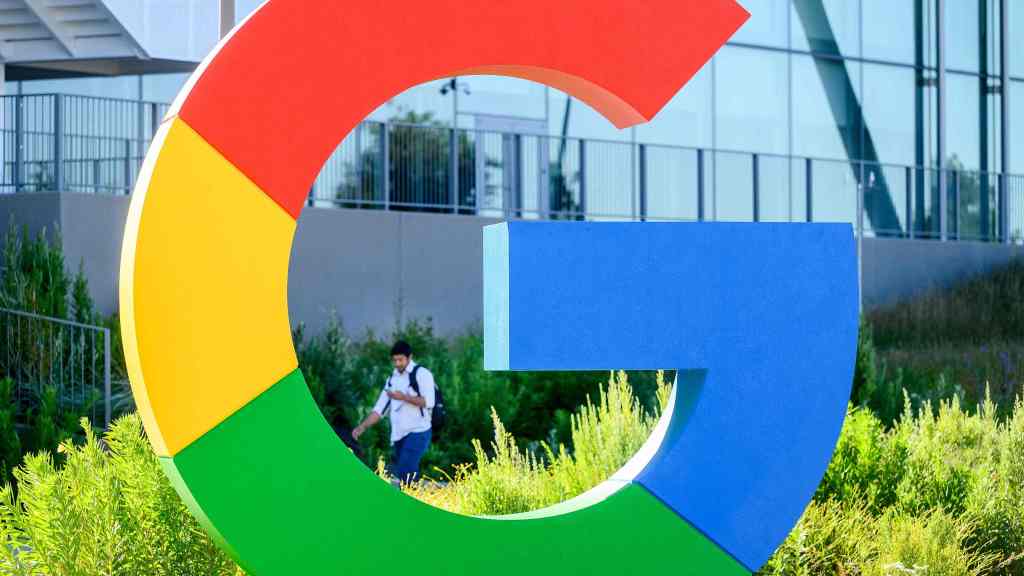Implications of a Potential Break-Up for Google’s Parent Company Alphabet
The phrase “structural remedies” may not sound alarming to everyone, but within competitive regulatory environments, it’s a significant term that suggests the possibility of a forced divestiture.
The U.S. Department of Justice (DoJ) is contemplating a bold move to break up Google, a colossal enterprise valued at $2 trillion that commands approximately 90% of internet search queries in the United States.
If such a break-up were to take place, it would mark the first time in over two decades that a major American tech firm has faced this level of scrutiny, reminiscent of the unsuccessful antitrust actions against Microsoft in the late 1990s.
This unfolding legal battle intensifies the scrutiny on Alphabet Inc., Google’s parent company, as it contends with growing pressure from competitors and regulatory bodies across the U.S. and Europe. There are rising concerns regarding the future of its various services, including the search engine, Chrome browser, Play app store, and Android operating system, particularly as Google navigates a competitive landscape reshaped by advancements in artificial intelligence and social media.
What has led to allegations against Google?
A recent ruling by federal judge Amit Mehta concluded that Google has established an unlawful monopoly in the online search and advertising sectors. This decision stemmed from a complaint filed by the DoJ four years prior.
The Department indicated that Google’s actions have led to significant and detrimental effects on markets crucial to American consumers.
According to the DoJ, Google has maintained illegal monopolies in both search and search advertising for more than ten years, leading to a market gap that has “unlawfully enriched” Google while stifling competition. The agency aims to open up the market for competitors, thereby providing consumers and businesses with enhanced choices.
The DoJ emphasized that the extensive barriers to entry, bolstered by Google’s dominance, mean that potential competitors would need to tackle an extraordinarily difficult challenge—creating a search service, a vast distribution network, extensive user data, integrated AI capabilities, and a robust network of advertisers simultaneously.
Legal teams representing the DoJ have outlined potential remedies in their court documents.
What actions could be taken against Google?
Competition cases tend to progress slowly. Currently, the DoJ is merely proposing potential solutions, which could include measures from breaking up the company to imposing limitations on Google’s distribution agreements with partners like Apple.
In 2022, Google paid Apple $20 billion to secure its position as the default search engine on Safari, Apple’s web browser. The DoJ argued that this arrangement left other competitors with minimal incentive to attract users, while device manufacturers were also less inclined to explore alternative search options.
Among the measures being considered are restrictions on Google’s ability to have its services as default options on devices.
Furthermore, the DoJ might impose limits on how Google’s search operations benefit from other products under its umbrella, such as Android, Chrome, and the Play Store. For instance, the default setting on Chrome directs users to Google’s search engine, while the Play Store is essential for Android device users.
The DoJ flagged that Google’s stronghold in text advertising translates into limited options for advertisers and inflated costs, which dissuades investors from backing new search initiatives with no clear method of entering the marketplace. Consequently, Google may be mandated to provide more transparency to advertisers.
Once effective remedies are established, Google might be required to finance a technical oversight committee, designate a senior executive responsible for compliance, and/or be restricted from holding stakes in emerging competitors.
While the DoJ’s suggestions are extensive, it remains uncertain which specific proposals might gain traction.
Expectations are that a more comprehensive proposal from prosecutors will be filed with the court by November 20. Google, which warns that the DoJ’s broad proposals could lead to unintended consequences, is set to propose its remedies in December. A conclusive ruling is anticipated by next August, and Google has indicated a likelihood of appealing any decisions, hinting that this legal saga may extend for years.
What are the chances of a Google break-up? Could Chrome and Android be sold off?
This scenario evokes memories of a previous antitrust conflict involving a major tech firm in the U.S. in the 1990s. Microsoft was accused of monopolistic practices in the web browser domain, which hinged on the “power of the default” search engine.
Initially directed to split into two entities, that ruling was partially overturned upon appeal after the presiding judge was found to have demonstrated bias, prompting prosecutors to abandon further break-up efforts.
Although this episode took place over 20 years ago, it remains relevant as prosecutors deliberate their strategy in the current antitrust atmosphere.
Google has labeled the proposals under consideration as “radical” and claims they exceed the legal matters at hand. While Chrome and Android appear to be prime candidates for divestiture, Google contends that this might not necessarily lead to reduced costs for consumers, as their profitable advertising divisions subsidize free or low-cost services. It remains ambiguous how divesting Chrome and Android would change the default nature of Google search for device manufacturers and consumers alike.
Analysts from Wedbush have characterized a break-up as “unlikely” and foresee that any significant impacts on its business model will be mainly tied to its search distribution agreements with partners like Apple.
If a divestiture were to occur, it could foster smaller, more agile companies. Some experts attribute the mobile industry’s innovations to the break-up of AT&T 40 years ago, which had long monopolized the telecommunications market.




Post Comment